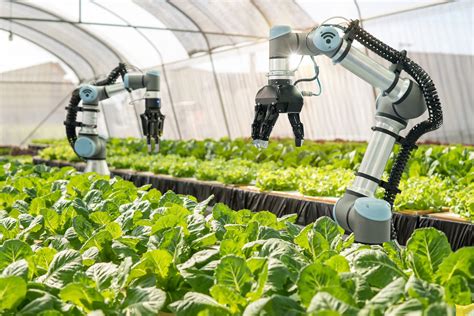The world of farming has undergone significant transformations over the years, driven by advancements in technology, changing consumer demands, and the need for sustainable practices. One of the most exciting developments in the agricultural sector is the rise of horticulture technology, also known as hort tech. This innovative field is revolutionizing the future of farming, making it more efficient, productive, and environmentally friendly.

Hort tech encompasses a broad range of technologies, including precision agriculture, vertical farming, and precision irrigation. These innovations are designed to optimize crop yields, reduce waste, and minimize the environmental impact of farming practices. By leveraging cutting-edge technologies, farmers can make data-driven decisions, automate processes, and improve the overall efficiency of their operations.
Benefits of Hort Tech
The benefits of hort tech are numerous and far-reaching. Some of the most significant advantages include:
- Increased crop yields: By using precision agriculture techniques, such as precision irrigation and fertilization, farmers can optimize crop growth and increase yields.
- Water conservation: Precision irrigation systems can reduce water waste and minimize the environmental impact of farming practices.
- Improved crop quality: By using advanced monitoring systems and data analytics, farmers can identify and address potential issues before they affect crop quality.
- Reduced labor costs: Automation and robotics can help reduce labor costs and improve efficiency in farming operations.
- Enhanced sustainability: Hort tech promotes sustainable farming practices, reducing the environmental impact of agriculture and promoting eco-friendly methods.
Types of Hort Tech
There are several types of hort tech, each with its unique benefits and applications. Some of the most common types include:
- Precision agriculture: This involves using advanced technologies, such as GPS and sensors, to optimize crop growth and reduce waste.
- Vertical farming: This method involves growing crops in vertically stacked layers, often in indoor environments, to increase yields and reduce land use.
- Precision irrigation: This involves using advanced sensors and monitoring systems to optimize water usage and reduce waste.
- Greenhouse automation: This involves using automation and robotics to optimize greenhouse operations, including temperature control, lighting, and irrigation.

How Hort Tech is Revolutionizing Farming
Hort tech is revolutionizing the future of farming in several ways:
- Data-driven decision making: By using advanced monitoring systems and data analytics, farmers can make informed decisions about crop management, irrigation, and fertilization.
- Automation and robotics: Automation and robotics can help reduce labor costs and improve efficiency in farming operations.
- Increased crop yields: By using precision agriculture techniques, farmers can optimize crop growth and increase yields.
- Improved crop quality: By using advanced monitoring systems and data analytics, farmers can identify and address potential issues before they affect crop quality.
- Enhanced sustainability: Hort tech promotes sustainable farming practices, reducing the environmental impact of agriculture and promoting eco-friendly methods.
Real-World Applications of Hort Tech
Hort tech has numerous real-world applications, including:
- Commercial farming: Hort tech is being used in commercial farming operations to optimize crop yields, reduce waste, and improve efficiency.
- Urban agriculture: Hort tech is being used in urban agriculture to increase food production in urban areas and promote sustainable farming practices.
- Research and development: Hort tech is being used in research and development to improve crop yields, disease resistance, and nutritional content.

Challenges and Limitations of Hort Tech
While hort tech has numerous benefits, there are also challenges and limitations to its adoption:
- High upfront costs: The initial investment in hort tech can be high, making it inaccessible to some farmers.
- Limited accessibility: Hort tech may not be accessible to farmers in developing countries or those with limited resources.
- Cybersecurity risks: The use of advanced technologies in hort tech can increase the risk of cybersecurity breaches.
- Regulatory frameworks: The regulatory framework for hort tech is still evolving and may vary by country or region.
Future of Hort Tech
The future of hort tech is promising, with ongoing innovations and advancements in the field. Some of the trends and developments to watch include:
- Increased adoption: Hort tech is expected to become more widely adopted, particularly in commercial farming operations.
- Advancements in AI and machine learning: AI and machine learning are expected to play a larger role in hort tech, enabling more precise and efficient farming practices.
- Integration with other technologies: Hort tech is expected to be integrated with other technologies, such as blockchain and IoT, to promote transparency and efficiency in the supply chain.

Conclusion
Hort tech is revolutionizing the future of farming, making it more efficient, productive, and environmentally friendly. While there are challenges and limitations to its adoption, the benefits of hort tech are numerous and far-reaching. As the field continues to evolve, we can expect to see increased adoption, advancements in AI and machine learning, and integration with other technologies.






What is hort tech?
+Hort tech refers to the use of advanced technologies, such as precision agriculture, vertical farming, and precision irrigation, to optimize crop yields, reduce waste, and improve efficiency in farming operations.
What are the benefits of hort tech?
+The benefits of hort tech include increased crop yields, reduced waste, improved crop quality, reduced labor costs, and enhanced sustainability.
What are the challenges and limitations of hort tech?
+The challenges and limitations of hort tech include high upfront costs, limited accessibility, cybersecurity risks, and regulatory frameworks.
We hope this article has provided you with a comprehensive understanding of hort tech and its applications. Whether you're a farmer, researcher, or simply interested in the future of agriculture, hort tech is an exciting field that is worth exploring.
